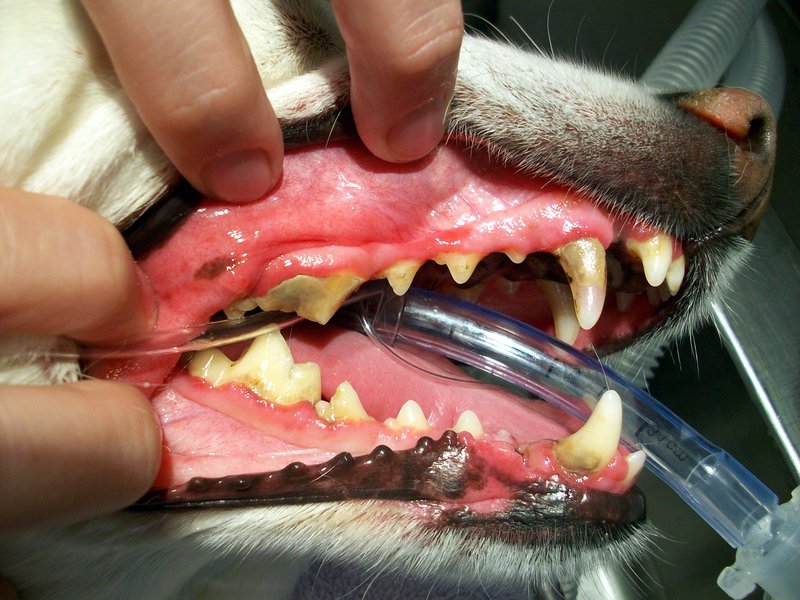Dental

One of the most common disease processes seen in veterinary medicine is dental disease. Our pets are at a much higher risk for dental problems for several reasons including a lack of daily hygiene and infrequent visits for prophylactic cleanings. Even certain breeds of dog and cat are predisposed to developing dental abnormalities. Dogs and cats often develop plaque buildup which can lead to tartar formation, gingivitis, and periodontal disease. While the first sign we often notice is simple bad breath, inflammation around the tooth can quickly result in root decay and eventual tooth loss, not to mention considerable pain and discomfort, decreased appetite, abscesses, eye damage, and weight loss.
Dental disease among our pets is a very significant process that can affect not only the health of your pet’s mouth but his body as a whole. There are strong correlations between dental disease and several other diseases including hypothyroidism, diabetes, and feline leukemia. Severe infection can even travel into and through the bloodstream to organs such as the kidneys and the liver. Even some heart diseases, such as bacterial endocarditis, are impacted by gingival inflammation.
At Harpeth Valley Animal Hospital we offer thorough dental examinations as part of your pet’s routine visit. If needed, comprehensive dental cleanings are recommended and provided. As before any surgery, your pet’s blood will be screened for any possible abnormalities that may impact the dental cleaning process. After placing an IV catheter and beginning surgical fluids and general anesthesia, your pet’s teeth are scaled and polished similarly to your own at your dentist. The teeth are evaluated for health and stability of both the crowns and roots. If any teeth are so diseased that they pose a threat to the health of our patient, the site is prepared and if needed local anesthesia is provided and the tooth is extracted. Appropriate antibiotic therapy and pain management is provided based on the needs of your pet. Your pet is discharged from the hospital the same day as the procedure and is often back to normal that evening.
